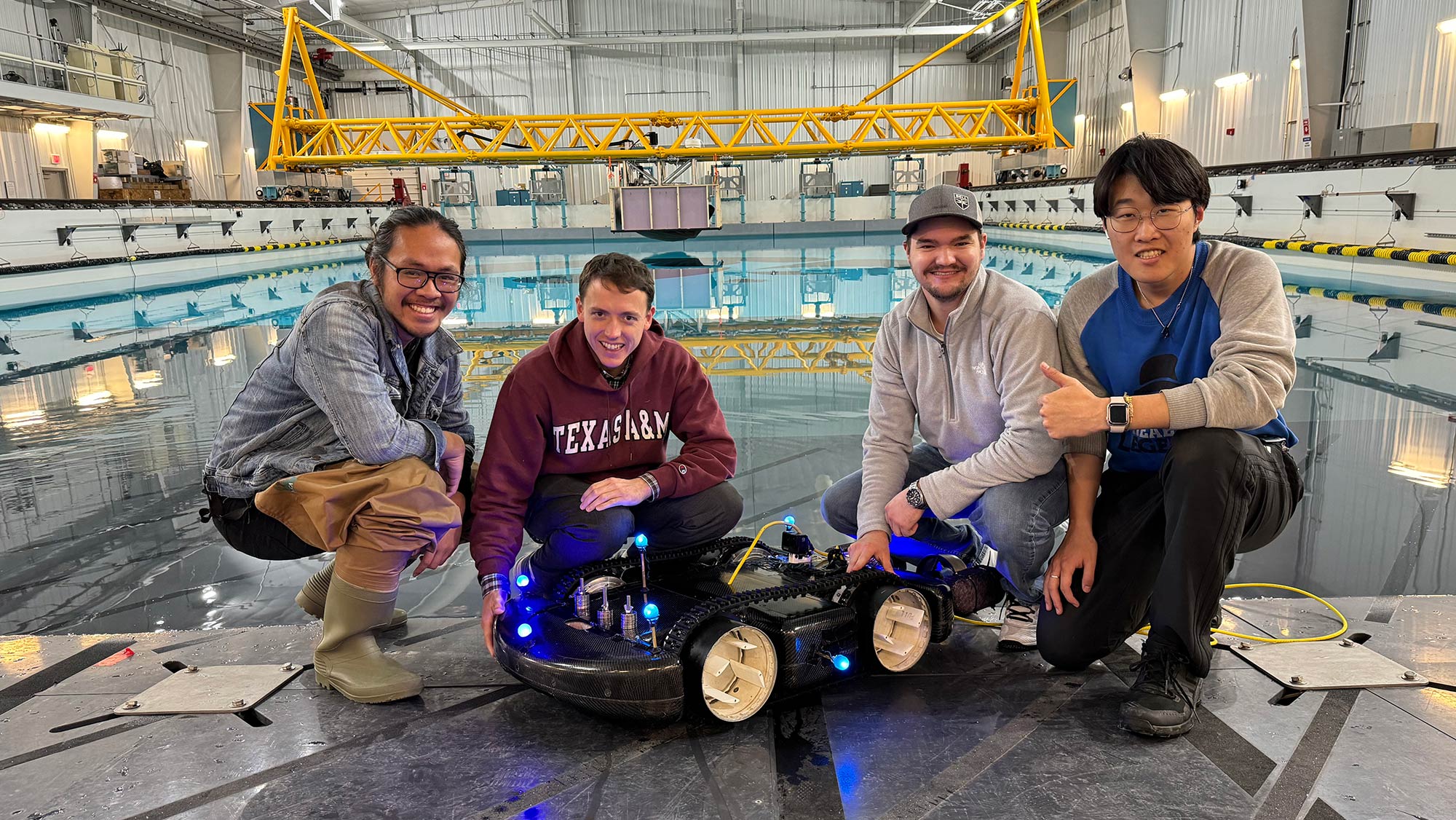
Each year, the international OCEANS Conference represents an opportunity for maritime professionals and researchers from around the world to learn, innovate, and share their knowledge in the field of ocean engineering and marine sciences. OCEANS was held at the Sands Expo and Convention Center in Singapore from April 14 – 18, 2024.
One of the flagship events held during this conference is the Student Poster Competition (SPC), where a small group of students from around the world are selected to take part in the conference and present their research, with all costs of travel and lodging covered by the Office of Naval Research and the Schmidt Ocean Institute. All posters are reviewed and ranked by a panel of 6 judges, with the top-ranked poster awarded a $3000 prize.
A paper submitted by a team from the Advanced Vertical Flight Laboratory (AVFL) at the Texas A&M University Department of Aerospace Engineering was one of 16 papers selected to take part in the OCEANS 2024 Singapore SPC. The team’s research poster was presented at the SPC to hundreds of conference attendees by Jonathan Lephuoc, a 2nd-year master’s student working with Dr. Moble Benedict. It was awarded first place out of the 16 SPC competitors.
The team’s research pertains to the design and development of an amphibious cycloidal propeller unmanned underwater vehicle (Cyclo-UUV) developed at AVFL as a culmination of three separate grants from the Office of Naval Research from 2018 – 2024 with Dr. Benedict as the PI. The Cyclo-UUV features a set of four retractable cycloidal propellers for propulsion and control as well as a pair of rear-mounted thrusters for an added boost in forward velocity during high-speed cruise for mobility underwater as a UUV. The cycloidal propellers provide for excellent agility and controllability due to their unique 360° thrust vectoring capability.
Additionally, the cycloidal propellers can be retracted into a set of tank treads to allow for transitioning between mobility underwater and on land. This unique multi-modal propulsion and control system lends itself to amphibious applications in restrictive environments with severe disturbances due to breaking waves and strong currents, such as the surf zone. A visual demonstration of the Cyclo-UUV’s agility, controllability, and amphibious capabilities in an artificial wave basin can be seen in this demo video.